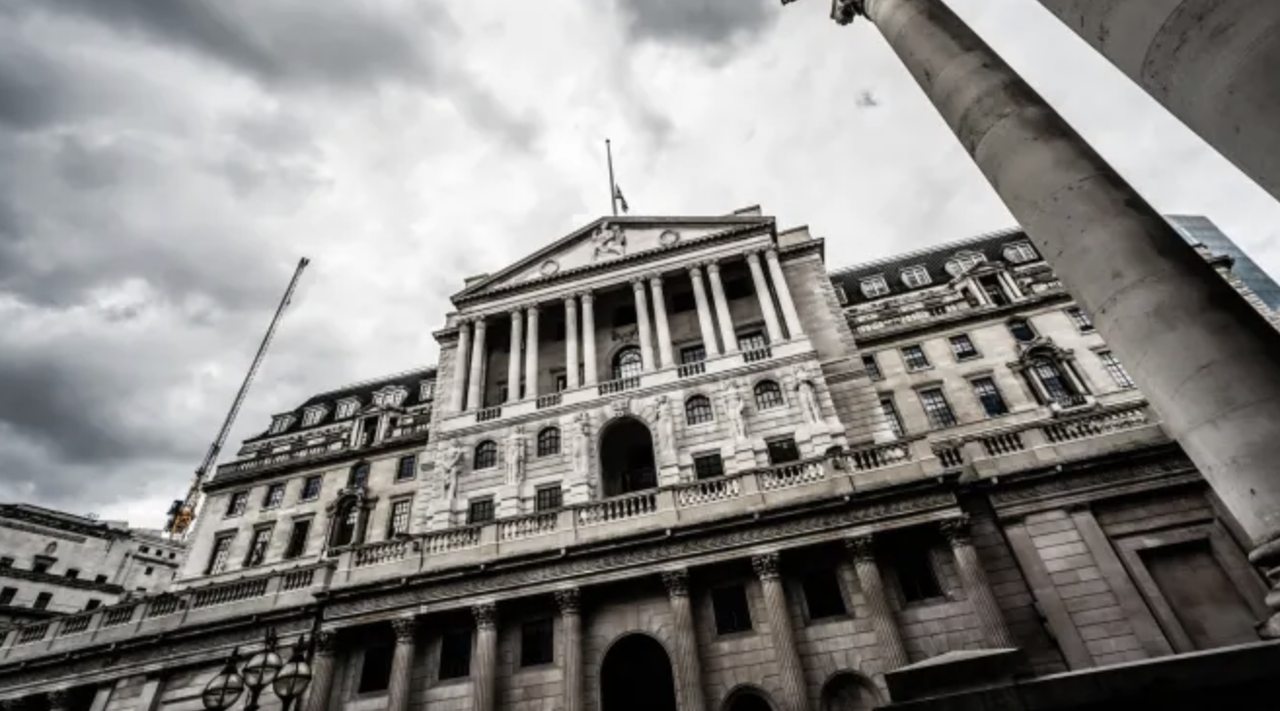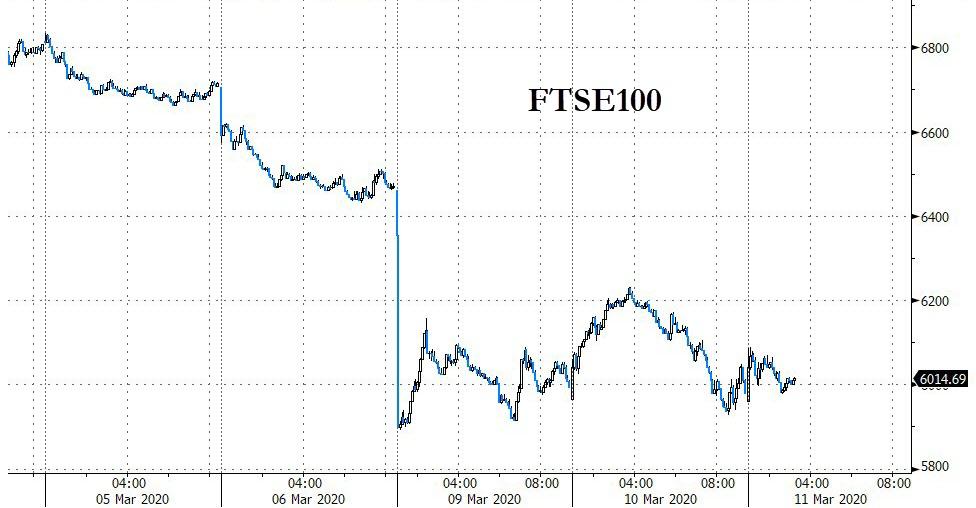UK Government Unveils “Corona Budget” After BoE Follows Fed With “Emergency” 50bp Rate Cut
Six months ago, it seemed almost unimaginable that anything would replace Brexit as the biggest ambient risk for the UK economy. But after six deaths and hundreds of confirmed infections, the coronavirus has accomplished this seemingly impossible task. And after publishing a litany of screeds warnings about the impending Brexit fallout, the BoE decided to serve up a 50bp emergency rate cut to save the British economy from the looming viral threat.
Two days after UK stocks faced their worst shellacking since the financial crisis, the BoE slashed rates in what appears to be the first part of a one-two punch that will also include Boris Johnson’s first budget. Chancellor Rishi Sunak, who took over from his predecessor Sajid Javid just three weeks ago, has been thrust into the spotlight Wednesday morning as he prepares to unveil what’s become known as the “coronavirus budget”, according to the BBC.
The MPC voted unanimously to reduce the main lending rate by half a percentage point on Tuesday, but potentially more important than the rate cut itself was its decision to offer banks four years of cheap funding so that they could continue to lend during the coronavirus crisis and bridge a potentially challenging period.”
The central bank also slashed requirements to hold capital buffers to allow them to take temporary losses without curtailing lending. The decision to let banks draw on the so-called “countercyclical buffer” would allow them to lend an additional £200 billion in corporate credit, “exactly the kind of drawdowns that would be required in this kind of situation.”
During a post rate-cut press conference, BoE Governor Mark Carney said the coronavirus will cause “an economic shock that could prove large and sharp, but should be temporary.”
Carney also said the BoE is “coordinating actions with those to be outlined in the Chancellor’s budget later today.”
BOE Governor Mark Carney says coronavirus will cause “an economic shock that could prove large and sharp, but should be temporary”
More on U.K. emergency rate cut: https://t.co/xclCCZpQtu pic.twitter.com/qywT8ZGfzq
— Bloomberg Brexit (@Brexit) March 11, 2020
https://platform.twitter.com/widgets.js
The cut – the largest since March 2009, when the British economy was still reeling from the financial crisis – reduced Britain’s benchmark overnight rate to just 25 basis points.
The BoE wasn’t alone on Wednesday: The Central Bank of Iceland lowered its benchmark interest rate by 50bps on Wednesday, bringing the bank’s 7-day term deposit rate to new all-time low of 2.25%.
Outgoing governor Carney on Wednesday also formally handed the reins to his successor, deputy governor Andrew Bailey. During Bailey’s remarks, the new BoE governor said the central bank had used ‘roughly half’ of its policy ammunition on Wednesday, but caveated that this could change depending on how effective forward guidance is.
As FX analyst Viraj Patel pointed out, if Rishi’s coronavirus budget includes significant short-term support for workers and businesses, the UK will become the first developed country (ignoring China) to deliver a comprehensive economic response to the viral crisis (compare this to what’s going on in the US). He added that unlike the Fed, market’s are pricing in a “one and done” approach from the BoE
Markets pricing in very little additional stimulus from BoE now. Bank have been clear on ZLB being just above zero (anti-negative rates) which gives them little scope to cut further without changing their ZLB stance. With this floor – $GBP should stay supported as other CBs ease pic.twitter.com/8HKws6CENM
— Viraj Patel (@VPatelFX) March 11, 2020
https://platform.twitter.com/widgets.js
The pound dipped on the news, but has since rebounded.
The response for the FTSE was muted as investors await the government’s March budget, which is expected around noon GMT (7 amET.
As investors look ahead to the budget, here are five elements that could be included in the package, per the BBC.
- Emergency money for the NHS
- A cut to VAT
- Waive or reduce business rates
- Support for gig economy workers
- Hardship fund for small businesses
Tyler Durden
Wed, 03/11/2020 – 06:44![]()
Zero Hedge’s mission is to widen the scope of financial, economic and political information available to the professional investing public, to skeptically examine and, where necessary, attack the flaccid institution that financial journalism has become, to liberate oppressed knowledge, to provide analysis uninhibited by political constraint and to facilitate information’s unending quest for freedom. Visit https://www.zerohedge.com



